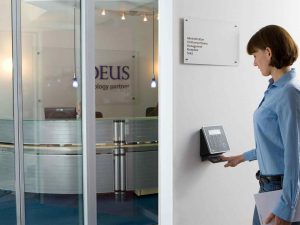Hybrid Work, Smarter Spending: How to Maximize Savings for Businesses

Table of Contents
The pandemic forced upon a new way of working – work from home. After the pandemic, hybrid work is in vogue. It consists of working remotely from home as well as physically from the office for a few days each. It’s a win-win for the organizations and the employees as well. Hybrid work gives businesses the opportunity to cut costs and reap benefits. Here are some tips on how hybrid work can lead to business savings in the UK. ~ Ed.

A hybrid workspace is a work environment that mixes remote and in-office work, allowing individuals to work from home and at an actual office location. Work is changing at an unprecedented rate, and organisations are adopting new models to adapt and succeed. The notion of a hybrid workspace is one such paradigm that is gaining traction.
Hybrid workplaces provide a dynamic solution that fulfills the demands of modern enterprises and individuals by combining the benefits of remote work with the help of an office setting. We’ll look at the possibilities of hybrid workplaces and how they change how we work, communicate, and get things done in and out of the office.
9 Ways Hybrid Work Can Lead to Business Savings
Optimising many parts of operations and expenditure is required to maximise savings for firms in the context of hybrid work and wiser spending. Here are some cost-cutting ideas for businesses:
Evaluate Remote Work Options
Determine which roles may be efficiently done remotely while adhering to employment rules and regulations. Consider staff productivity, communication tools, and data security. Businesses that reduce their office space requirements might save money on rent and business rates, which are property taxes in the UK. In this way, hybrid working can curb business energy costs.
Implement Cost Controls
Create spending policies and procedures that are in accordance with UK financial legislation and accounting standards. Establish budget boundaries for spending categories and impose approval procedures. Track and analyse expenditure trends using the popular expense management software.
Invest in Technology
Invest in laptops, software licences, and collaboration platforms in the UK to allow smooth remote work. Think about cloud-based options like Microsoft 365 or Google Workspace. Investigate cost-effective alternatives and lease possibilities to spread out expenditures over time. Technological tools help to automate manual processes and eliminate repetitive tasks while streamlining workflows.
Another benefit is the flexibility and scalability of technology will allow your business to expand internationally, as you can share documents and work with other professionals across the globe.
Related Posts
Streamline Travel Expenses
In the UK, evaluate business travel needs and investigate alternatives such as virtual meetings, video conferencing, or online collaboration tools. When travelling, utilise travel management tools such as Booking.com for Business to discover the most affordable flight, lodging, and transportation rates.
Negotiate Vendor Contracts
Examine existing vendor contracts and bargain for improved terms. Seek comparative offers and pricing comparisons from several providers. Consider combining your purchases with a single vendor to maximise bulk savings. Consider UK-specific rules, such as the Competition Act 1998, which forbids anti-competitive agreements.
Optimise Energy Consumption
Encourage staff to turn off lights and equipment when not used to implement energy-efficient practices in the UK. To control heating and cooling, use smart thermostats. The UK government offers a variety of energy-saving programmes, grants, and tax breaks to companies. Another benefit of remote work is saving on energy bills as fewer people are needed in the office.
Conduct Regular Cost Reviews
Conduct frequent financial audits to discover areas of waste or inefficiency. Examine financial records, deviations in budgets, and essential performance indicators. Consult accountants or financial consultants knowledgeable about UK tax rules and regulations. Every area you discover in your business can reduce costs due to waste or inefficiency, freeing up potential capital.
Related Posts
Optimise Supply Chain Management
Work closely with UK suppliers to optimise inventory management. For inventory management, use software use the popular inventory management software. For better price terms, consider joining group purchasing organisations or industry-specific consortiums. Streamlining your business’s inventory management will free up cash flow and reduce the amount of capital tied up in excess stock, allowing you to invest in other parts of your operation.
Encourage Cost-Conscious Culture
Encourage a cost-conscious culture in the UK by teaching staff about the value of saving. Communicate cost-cutting strategies to staff and urge them to give suggestions. Implement incentive and recognition programmes to encourage cost-conscious behaviour.
Conclusion
To summarise, hybrid workplaces offer a compelling answer for companies wanting to manage the developing work landscape. Businesses may reap several benefits by combining remote labour with real office locations. They also provide cost savings potential through decreased office space needs and optimised resource deployment. Businesses may successfully use the benefits of hybrid workplaces while promoting collaboration and retaining organisational culture with exemplary implementation and the correct technological solutions.
Accepting the future of work through hybrid workplaces is a revolutionary decision that may position firms for long-term success in a quickly changing environment.
Over to you
As a business, how do you leverage and manage hybrid work to reap benefits? Share your tips and experiences with other in the comments.
Disclaimer: Though the views expressed are of the author’s own, this article has been checked for its authenticity of information and resource links provided for a better and deeper understanding of the subject matter. However, you're suggested to make your diligent research and consult subject experts to decide what is best for you. If you spot any factual errors, spelling, or grammatical mistakes in the article, please report at [email protected]. Thanks.



















The attitude of businesses towards remote work has significantly changed after the coronavirus pandemic. The pandemic forced companies worldwide to adapt to new conditions, leading to several key changes in their approach to remote work.
Firstly, the adoption of remote work has increased. Before the pandemic, many companies were skeptical about remote work, fearing that employee productivity would decrease without constant supervision. However, the forced transition to remote work showed that many employees could be as productive, if not more, working from home. Now, remote work has become a standard practice for many companies.
Secondly, hybrid work models have emerged. Many companies have adopted hybrid models that combine office days with remote work. This approach allows them to enjoy the benefits of both in-person interaction and the flexibility of remote work.
The pandemic also accelerated investments in digital transformation. Companies have begun to use tools for video conferencing, collaboration, and project management more actively. These technologies help maintain high levels of productivity and collaboration regardless of employees’ locations.
Corporate culture has also changed. Companies have started to focus more on work results rather than processes. Employee performance is increasingly evaluated based on the completion of specific tasks and achieving goals rather than time spent in the office.
Furthermore, businesses realized they could significantly reduce costs associated with office space, utilities, and other related expenses by decreasing office space requirements or fully transitioning to remote work.
The ability to hire remotely has expanded the geographic scope of recruitment. Companies can now hire talent regardless of their location, greatly increasing the pool of available specialists and allowing them to find the best candidates without being tied to a specific city or country.
Many employees have appreciated the ability to work remotely, as it allows them to better balance work and personal life. Companies, recognizing this, have started to pay more attention to employee well-being and satisfaction.
Despite the many advantages, remote work has also brought new challenges. These include maintaining corporate culture, managing remote teams, ensuring cybersecurity, and addressing employee burnout.
Overall, the pandemic has fundamentally changed the business attitude towards remote work, demonstrating its advantages and the necessity to adapt to new conditions. Companies that successfully integrated remote work have become more flexible and resilient in a rapidly changing world.
Encourage staff to turn off lights and equipment when not used to implement energy-efficient practices.
It will be good step for any organization, specially for Medial.
I always love to read your post!
The rise of digital communication tools and technologies has played a pivotal role in making the hybrid workspace a feasible and efficient reality. Video conferencing, collaboration platforms, and cloud-based systems enable seamless communication and collaboration, regardless of physical location.
This article provides a strategic roadmap for businesses navigating the hybrid work landscape. Maximizing savings through smarter spending is essential, especially in the evolving work environment. I’m excited to implement some of these cost-effective solutions.
i believe to work smart not hard smart like elon musk smart like billgates if some one want to be a successful person in his life he need to work smarter.
In business you need to be more knowledgeable to handle everything. Thanks for sharing your thoughts and Ideas!
Hybrid work environments are indeed the future. Balancing the flexibility of remote work with the collaboration of in-office interactions can boost productivity and employee satisfaction. Great read
The strategic approach outlined here perfectly aligns with the evolving nature of work. Finding that balance between cost-efficiency and employee satisfaction is the key to a thriving hybrid work environment.
Very good and rather practical tips. Thanks for sharing.
I particularly appreciate your emphasis on the importance of investing in technology and tools to support remote and hybrid work models. The pandemic has accelerated the need for businesses to adapt, and making wise investments in digital infrastructure can lead to significant long-term savings while also improving efficiency and productivity.
Hey RUSSEL
Great article on how to maximize savings for businesses! The tips and strategies mentioned are truly insightful and can be incredibly beneficial for organizations looking to optimize their financial resources. The article covers a wide range of areas, including cost-cutting measures, efficient resource allocation, and smart budgeting practices.
I particularly appreciate the emphasis on analyzing expenses and identifying areas where savings can be made. This proactive approach can help businesses identify unnecessary costs and redirect those funds towards growth opportunities or essential investments. Additionally, the article’s recommendation to negotiate with suppliers and explore bulk purchasing options is practical and can result in significant cost savings.
The article also highlights the importance of technology in streamlining operations and reducing expenses. Leveraging automation tools, implementing cloud-based solutions, and embracing digitalization can not only enhance efficiency but also help minimize manual errors and reduce overall costs.
Overall, this article provides a comprehensive guide for businesses on how to maximize savings effectively. It offers realistic and actionable advice that can be implemented by organizations of any size or industry. Kudos to the author for sharing such valuable insights
Some things are better off when they remain on paper. Starting a business in countries like the United States is somehow a smooth process. The Texas example you gave for instance confirms how easier it is.
I somehow laughed at myself because where I find myself is something else.
Anyways, I really appreciate your post. It has been an eye opener.
Hybrid work is indeed the future! It allows businesses to cut costs while giving employees flexibility. Implementing cost controls and investing in technology are great ideas. Also, conducting regular cost reviews can help identify areas of inefficiency and potential savings. #HybridWork #BusinessSavings
A well-researched and beneficial blog for businesses navigating the world of hybrid work setups. The article aptly highlights cost-saving opportunities and smart spending practices while embracing remote and in-office work arrangements. The tips provided demonstrate how businesses can optimize their resources without compromising productivity. This blog is a valuable resource for organizations seeking to adapt to the evolving work landscape.
Great article on hybrid work for businesses! The author provides insightful tips and strategies for implementing a successful hybrid work model. I especially appreciated the emphasis on effective communication and collaboration between remote and in-office teams. The examples and real-life experiences shared add credibility and make the article relatable. Well done!
Really great post Russell! It’s really important to watch your savings and make conscious decisions when it comes to money and business.